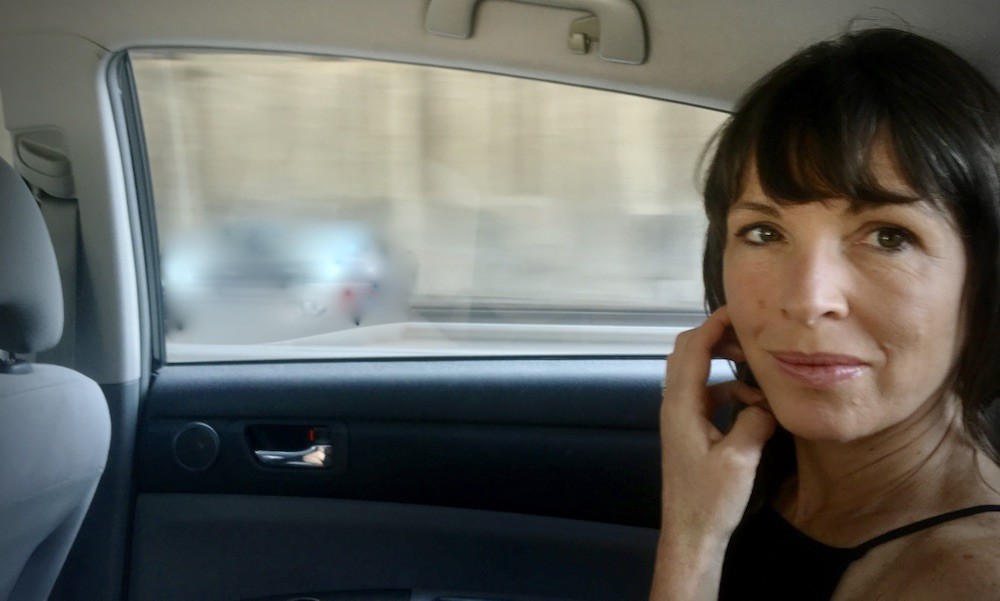Author Rachel Cusk Visits Creative Writing Lecture Series
Author Rachel Cusk is the latest distinguished writer to join the Creative Writing Lecture Series. Second-year Fiction student Matthew Humphreys had the opportunity to introduce Cusk at the event. Cusk is the author of the Outline trilogy, the memoirs A Life’s Work and Aftermath, and several other works of fiction and non-fiction. Her first novel, Saving Agnes (1993), won the Whitbread First Novel Award. She is a Guggenheim fellow, and her forthcoming book, Second Place, will be published later this year.
Her lecture, as Cusk described it, was a product of what she’s been thinking about during this unusual year. “I can sum it up as a question to myself about the extent to which writing is the product of identity, as opposed to the product of imagination, and what those two things are and how they’ve represented themselves in my own writing.” Cusk shared how during the last year, writing has felt both futile and necessary. “It’s true that in the absence of a normal world to live in and record, the proposition of writing changes. It feels, almost, a little dangerous...It has reminded me of the conditions in which I first began to write, when I didn’t know if I had any entitlement to.”
Cusk also discussed her contentious relationship with imagination. “It might almost be said that my biggest problem has been my refusal to make things up, and yet now it feels like it might be a liberating, relieving thing to do. The reason I have rejected imagination, or what goes by that name, is, I suppose, because I thought it was immoral. It is a kind of passport to everywhere. An entitlement to trespass into places we have no knowledge of and no right to be.” For Cusk, writing has been a “consequence of identity,” more so than an act of imagination; first as a human, then as subsequent identities, each with their own truths. However, imagination, as Cusk sees it, does play a role in how we process reality. “Reality is not a god. It is a random pattern from which truths emerge over time. That pattern can be, to a degree, rearranged. It can be cut into different shapes, or one part stitched to another part, or whole lengths of it discarded. So long as the substance—the fabric—remains the same.”
Assistant Professor Anelise Chen moderated the Q&A portion of the event, which had over 300 people in attendance. Chen is a member of the fiction faculty in the Writing Program, as well as the Director of Undergraduate Studies for Creative Writing at Columbia University. She is the author of So Many Olympic Exertions (Kaya Press, 2017), which was a finalist for the VCU Cabell First Novelist Award.
One student asked Cusk to speak about her life as a writer. “My entire life, I’ve thought that I was not a proper writer because I didn’t have a daily writing practice. I realized there was a reason for that—I was trying to find things out by the root of being and experience.” For Cusk, the writing process is very much an internal one, “composed in consciousness,” as she put it, while the task of writing itself is much more of an active performance. “I think that should be encouraging for a lot of us,” Chen said. “We always talk about in my classes how you think writing is just sitting at the computer and wringing it out of yourself.” This internal, mental composition is a side of writing which, according to Cusk, many writers do not think about often enough. The act of composition, of turning over a paragraph in the mind and changing it, feels much more akin to writing music, Cusk said.
Another student asked Cusk about the difficulties of mining her own experiences, and, at times, pain, for her art, and how it can be sustainable as a practice. “I never feel that it’s such a simple transaction as describing my own pain or something that happened to me. I’m not disowning the use of self as, absolutely, the source, the fountain, of one’s literary knowledge...but I suppose I view it much more dispassionately. I almost view myself as somebody else, and I’m only interested in the parts of my experience that seem, to me, quite universal and are part of an unspoken, shared experience.”
The Creative Writing Lecture Series brings distinguished writers to Columbia for original talks on craft. Recent guests have included John Keene, Sarah Manguso, Lynne Tillman, and Carmen Maria Machado. The next Creative Writing Lecture is with Namwali Serpell on Wednesday, March 10, 2021 at 7:30 pm ET.
